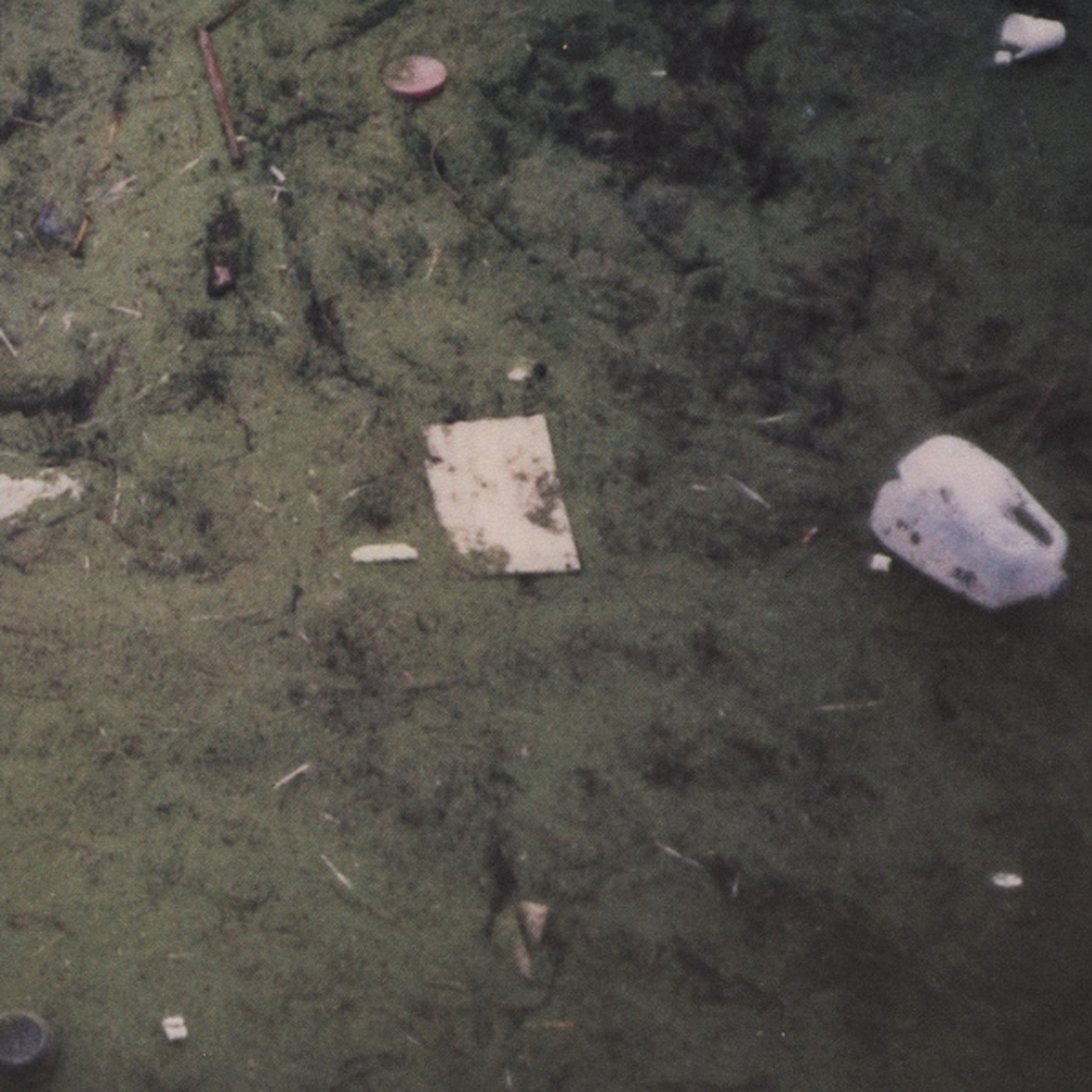 When it was first released in 2008, this massive (and newly reissued) ambient epic met with a rather polarized reception, but has gradually come to be fairly unanimously hailed as a classic.  I am a bit conflicted about that: while it certainly is a fine album, I have seen it favorably compared to Aphex Twin's Selected Ambient Works II, which seems very wrong to me, despite their similarly bleary, haunted feel.  The difference between the two albums is a massive, fundamental one: with Imperial Distortion, Drumm willfully abandons noise, melody, rhythm, and composition to fully embrace the hypnotic power of gently oscillating stasis.  It is an experiment that works beautifully and yields very listenable results, but it is far from the apotheosis of Kevin's work.
When it was first released in 2008, this massive (and newly reissued) ambient epic met with a rather polarized reception, but has gradually come to be fairly unanimously hailed as a classic.  I am a bit conflicted about that: while it certainly is a fine album, I have seen it favorably compared to Aphex Twin's Selected Ambient Works II, which seems very wrong to me, despite their similarly bleary, haunted feel.  The difference between the two albums is a massive, fundamental one: with Imperial Distortion, Drumm willfully abandons noise, melody, rhythm, and composition to fully embrace the hypnotic power of gently oscillating stasis.  It is an experiment that works beautifully and yields very listenable results, but it is far from the apotheosis of Kevin's work.
As far as "classic" albums go, this one had a remarkably humble and convoluted birth, as it was actually conceived of as a compilation to release in place of a different album (also called Imperial Distortion) that Drumm decided not to release.  Feeling uninspired, he began digging through unused studio scraps that he ultimately assembled into a suite of self-proclaimed "go nowhere tracks" spanning 1995 to 2008, which Dominick Fernow liked enough to release.  Despite Drumm's somewhat dismissive (if accurate) assessment of the material and the lengthy span of time involved, Imperial Distortion weirdly feels like a very coherent and deliberate artistic statement that is basically the complete opposite of what Kevin is generally revered for: rather than being dense, sharp, and brutally dynamic, these six pieces are invariably sparse, lengthy, blurry, and muted.  More colorfully, this is the sound of Kevin Drumm lulling me into an uneasy sleep rather than tearing my goddamn head off.
The most divergent piece is the opening "Gullaine-Barre" (named after a very unpleasant strain of ascending paralysis), which initially sounds like it is built from a distant murky recording of gongs or large bells.  Gradually, however, it coheres into a blurry sustained drone that gently throbs and shimmers for nearly 20 minutes.  That aesthetic of "blurry, sustained drones" then continues unabated for most of the next two hours, at which point Kevin finally diverges a second time (abruptly erupting into a grinding blast of white noise).  Still, within those very narrow stylistic confines, some rather mesmerizing and deeply immersive music occurs.
The trick, of course, lies in the details, as Drumm's hazy drones harmonize and oscillate uncomfortably with other noises to create a subtly swaying pulse and simmering low-level tension.  As someone who can find quite a bit of beauty in both pure sound and the way notes interact, wobble, and bleed together, I am very appreciative of the generous time and space Kevin allows his simple motifs to unfold.  Also, not all of the pieces slavishly follow the "go nowhere" aesthetic, yielding a few understated surprises.  In particular, "More Blood and Guts" and "Romantic Sores" stand out, as both unexpectedly give way to comparatively warm and/or melodic passages after ten or fifteen minutes of lulling me into complacency with their sleepily quavering hum.  The closing "We All Get It in the End" is quite striking as well, but that is entirely due to its sheer brooding menace rather than any sort of twist.
Mostly, however, Imperial Distortion is devoted to minimal, uneasily close harmonies and the subtle pleasures of oscillation, which are very absorbing in their own right and display an impressive ear and knack for restraint on Kevin's part.  While at its core this is basically just another drone album rather than anything particularly revolutionary, Drumm's use of extreme song durations and his textural propensity towards hiss and tape murk still manage to elevate these pieces into something fairly distinctive (think Phill Niblock, but with a healthy dose of blurriness and vague dread).  Given the healthy number of antecedents in this vein, I would definitely stop short of proclaiming Imperial Distortion unique or hailing it as any kind of masterpiece, but it is unquestionably a very good drone album by a very great noise artist.
 
Read More

